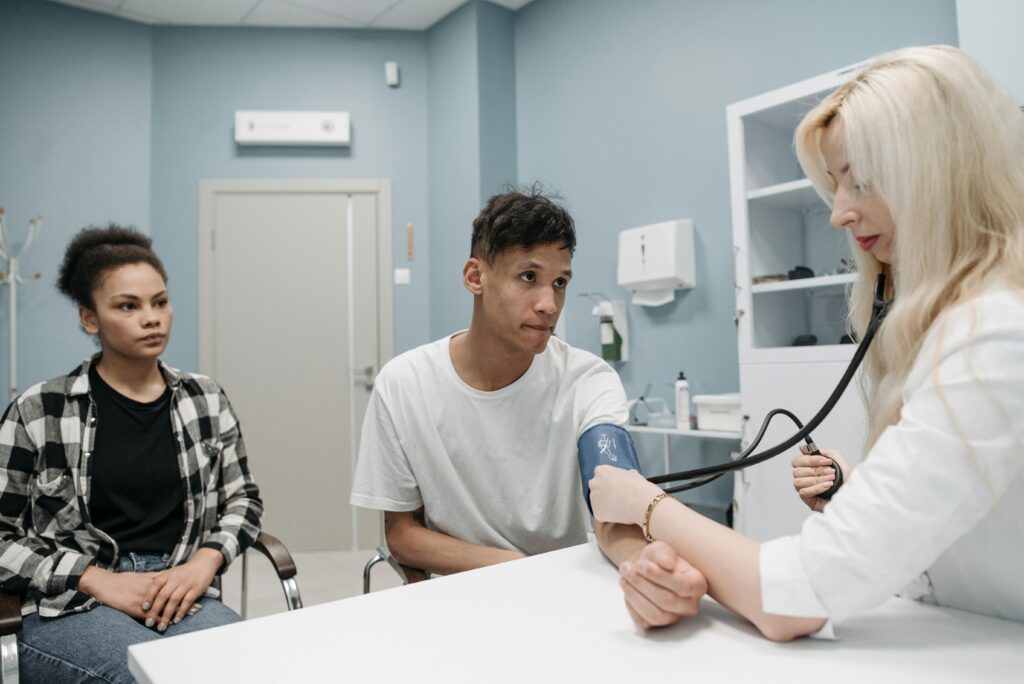|
Dear friends,
When I recently had the privilege to speak to the staff of AltaMed, a healthcare system that has served Southern California for a half-century and is the largest Federally Qualified Health Center (FQHC) in the U.S., I walked into the auditorium and found thousands of staff members there dancing. Literally, dancing.
Their joy springs from their dedication to improving patients’ well-being, not only to treating sickness. It also springs from their institution’s longstanding commitment to strengthening communities — to moving upstream. One way that AltaMed is doing that is through nonpartisan voter assistance.
You read that right: A health system providing voter assistance.
I’ve been writing a lot lately about the expansion from transactional to transformational change in the upstream movement — about the need to drive improvements along a continuum of health — from improving individual care and supporting institutional change to transforming community-level determinants of health.
At HealthBegins, we’re helping our partners work at all these levels. With National Voter Registration Day coming up on September 24, this expansion is an exciting opportunity to think about one of the most significant yet poorly understood drivers of health: civic participation.
What do I mean by that? Research has shown us there’s a vicious cycle that connects health and civic disparities. As I wrote in 2010 in the National Civic Review, people who suffer the most health disparities also experience the most civic disenfranchisement. And we know that when you’re unhealthy, you’re less likely to be able to register to vote and reach the polls, and thus less likely to shape the policies that make your community less healthy in the first place.
And civic disparities can perpetuate health disparities. In the presidential election of 2016, 60 million people — or one in four eligible voters in the country — were unregistered. Latino, Asian, and black communities had the highest numbers of unregistered voters, at 30 percent, 27 percent, and 17 percent, respectively. These civic disparities are getting worse, as more states place new restrictions on voter participation.
How do we break this vicious cycle and make it a virtuous one? We start by understanding that civic participation is an upstream driver of health. It is also a means by which individuals and communities can alter social and structural determinants of health.
So what simple steps can we take to promote civic participation?
To start, make sure the communities you serve are #VoteReady by signing up your healthcare system, community organization, association, business, or university as a National Voter Registration Day partner. The day is nonpartisan, endorsed by the National Association of Secretaries of State, the National Association of Election Officials, and many others. And it works; this event has helped register millions of voters since it started in 2012.
Second, think about providing voter registration forms in your waiting rooms. Think about becoming a polling place. Think about ways to register not only patients but also employees.
It might sound strange at first blush to bring civic life into clinics and hospitals. But the Motor Voter Act of 1993 called for nonpartisan voter registration at all offices providing public assistance. And if you think about it, there’s nothing more inherently democratic about the Department of Motor Vehicles than a doctor’s office.
HealthBegins is proud to partner in National Voter Registration Day, because we know that promoting upstream civic participation is not only necessary — it’s possible. In 2008, I founded a coalition of medical professionals and students who registered nearly 30,000 voters in clinics across the country. Since then, more and more health systems have taken up the cause. AltaMed, for one example, has committed to reaching out to 1.5 million voters in underserved communities to help them get to the polls.
With just under a month to go until National Voter Registration Day, I invite you and your organization to reflect on this question: What one small step can you take to help ensure people have a voice in shaping the civic health of their communities? Share your answers with us on social media. Use #VoteReady @HealthBegins
Take that step, and soon enough you and your colleagues might find yourselves dancing as well.
See you upstream,

Rishi Manchanda
|









